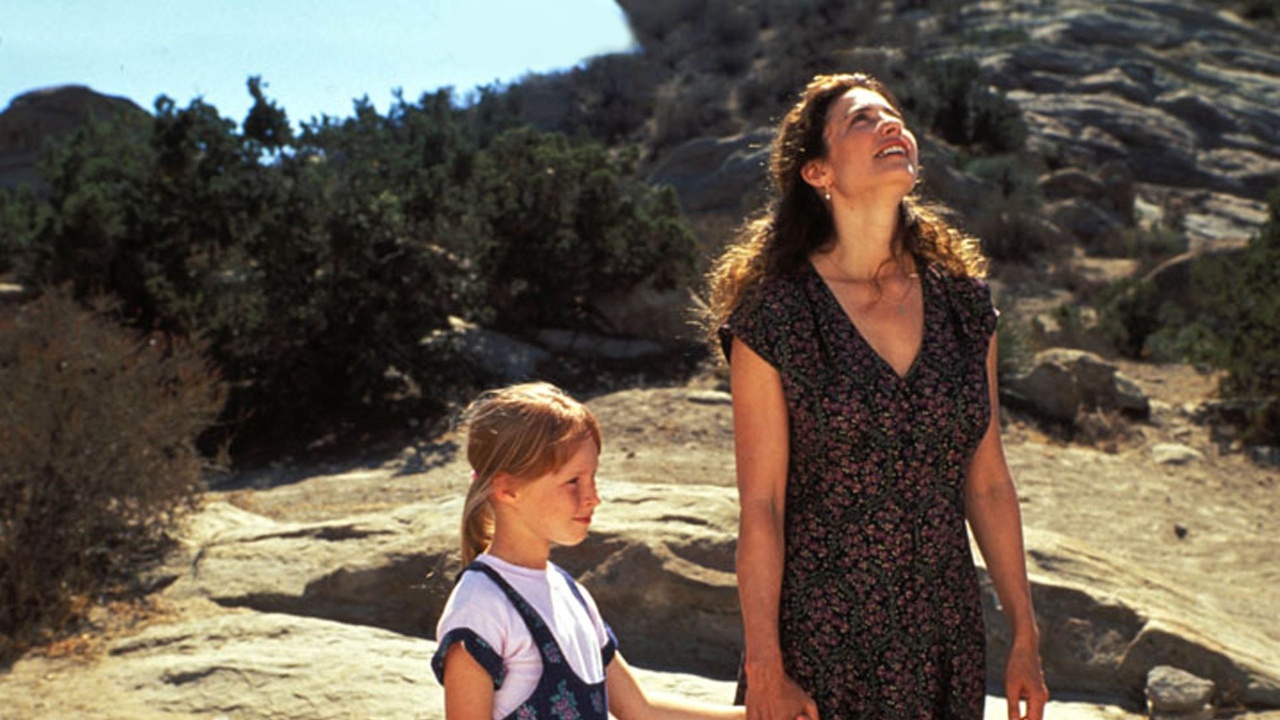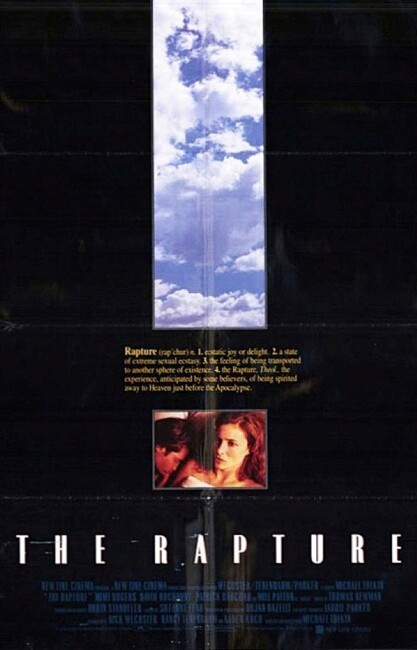Crew
Director/Screenplay – Michael Tolkin, Producers – Karen Koch, Nancy Tenenbaum & Nock Wechsler, Photography – Bojan Bazelli, Music – Thomas Newman, Production Design – Robin Standefer. Production Company – New Line Cinema/Wechsler-Tenenbaum-Parker.
Cast
Mimi Rogers (Sharon), Will Patton (Foster Madison), David Duchovny (Randy), Patrick Bauchau (Victor), Kimberly Cullum (Mary), Dick Anthony Williams (Henry), Terri Hanauer (Paula), James Le Gros (Tommy), Carole Davis (Angie)
Plot
Sharon is a telephone exchange operator who is bored with life. She and her partner Victor engage in group in sex with other couples. Sharon becomes intrigued after hearing two co-workers talking about cryptic religious terms. They tell her that she needs to pray. Driven to the point of suicide by the emptiness of her life, Sharon decides to convert to Christianity. She settles down, marries and has a daughter. At revival meetings, she becomes intrigued by talk of The Rapture – the Biblical End of the World where all believers will be taken up to Heaven. After her husband is shot, Sharon comes to believe that The Rapture is soon at hand. Led by a series of visions, she sells everything to go into the desert and wait for the end to come. However, the wait is something that brings her faith into question.
The Rapture was the directorial debut of Michael Tolkin, the screenwriter of Robert Altman’s The Player (1992). The Rapture was a flop in theatrical release – which is saddening as it is a profound and disturbing religious work. Unlike the clumsy, heavy-handed piety familiar from films such as Ben Hur (1959) and King of Kings (1961) or even the tabloid shock-horror of the similar Biblical End of the World themes in The Omen (1976) and imitators, this is one time where the term ‘religious film’ comes remarkably free of bombast and sentiment.
The film takes a long time to get started – fully a half of it is flat and statically directed, proving difficult to get into. However, the last third of the film uses Mimi Rogers’ desert ordeal to almost turn her into a latter-day Abraham-come-Job and to question why God demands that one must love Him no matter what. Michael Tolkin eventually concludes that if Life is a gift from God then suffering must also be a ‘gift’ from God. The ending where the Judgment Call has come and Mimi Rogers decides that she will not go, unable to reconcile her doubts, and is consigned to wait behind with the final chilling realisation that it will be “Forever,” comes with a disturbing slam.

It is in the last twenty minutes that The Rapture takes on a striking out-and-out surrealism with the fulfillment of Biblical End Times prophecies – images of the Four Horsemen of the Apocalypse riding across the sky; the sounds of the Last Trumpet blowing; the eerie images of the bars in the jail cell simply shattering; and Mimi Rogers’ dead daughter reappearing to her, accompanied by two angels with flaming swords, imploring her that she must love God no matter what. A remarkable film.
Michael Tolkin would next go on to direct and write The New Age (1994), a biting satire on the Hollywood nouveau riche. Tolkin would later co-write the script for the asteroid collision film Deep Impact (1998) and non-genre works such as Deep Cover (1992), Changing Lanes (2002) and Nine (2009), as well as creator of the tv mini-series Escape at Dannemora (2018) and The Offer (2022).


